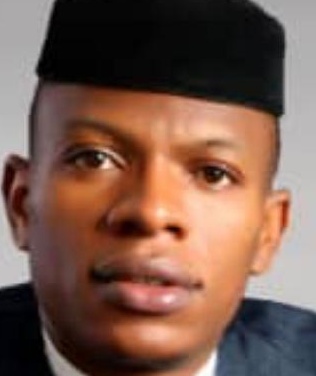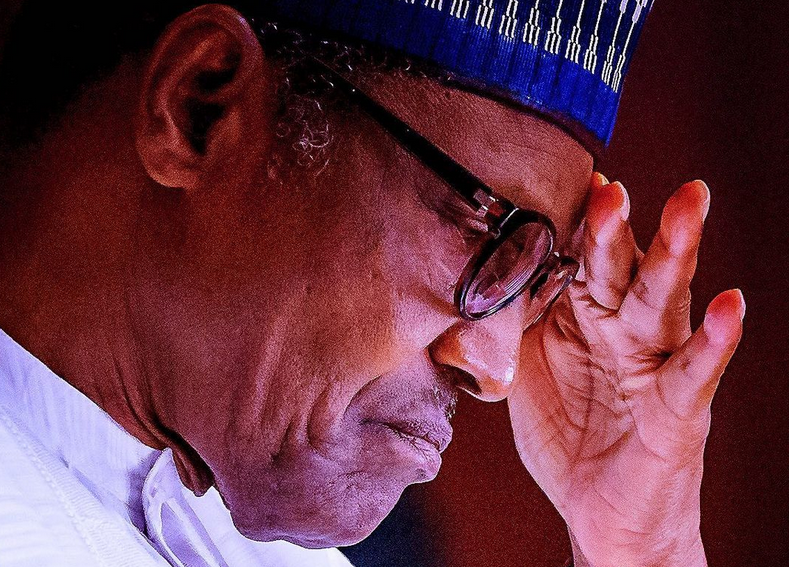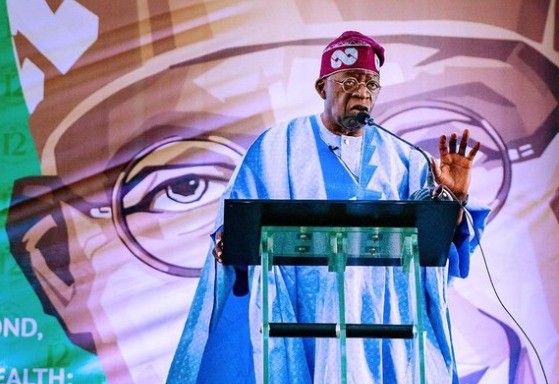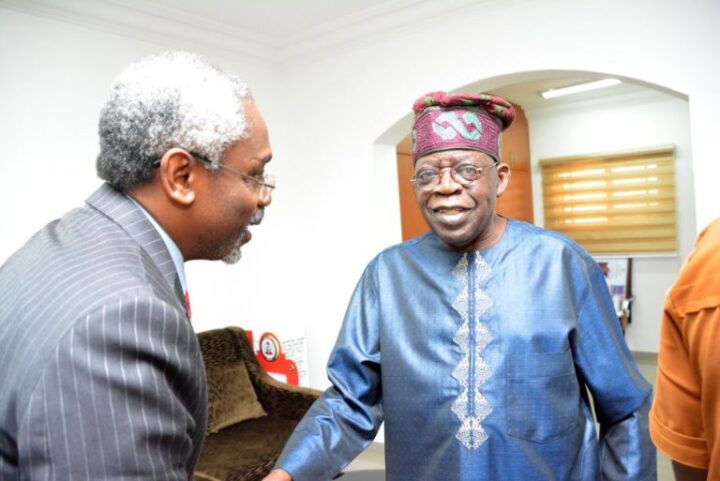If the millions of Nigerians who trooped out en masse (bustling with energy and optimism) to vote President Muhammadu Buhari into power some six years ago were told that they were committing to a future of pain, hardship, and misery; few, if any would have agreed. Such was the amount of goodwill that greeted the second coming of the Daura politician. It is remarkable how all that goodwill has been frittered away on the altar of clannishness, narcissism, and unprecedented display of incompetence, all of which have come to define the Buhari Presidency.
To the credit of the “Change” Government of Muhammadu Buhari, it set for itself the standards by which it would be judged by Nigerians, nay history. These were encapsulated in the three-fold campaign singsong of stamping out the insurgency, fighting corruption, and revamping the Nigerian economy pre- 2015. Again, to their eternal credit, the issues looked to have been well researched as they represented, to a large extent, the major issues Nigeria have historically grappled with, and the basis on which Nigerians fell out with President Goodluck Jonathan.
Despite the uninspiring first outing between 2015 and 2019 on these Key Performance Indices (KPI), “Change” was somehow, upgraded to “Next Level” and with a combination of the electoral heist, and exploitation of the naivety of the Nigerian voter, the administration was able to secure a controversial re-election.
It was thought that the administration would make a clean sweep of the unmerited favour done to it at the 2019 polls, by re-evaluating its approach and strategies so as to meet the mass of Nigerians, at the point of their needs, as yours truly, as well as many other critical observers of Nigeria had surmised; however, the reverse is so far the case. From “Change” that didn’t happen between 2015 and 2019; Next Level, has come with more pain and misery for many Nigerians. As a matter of fact, Nigeria, as we know it today, is fastly falling apart under Muhammadu Buhari. Those who have been around more than the people of my generation say that we have never had it this bad.
Advertisement
Of all the maladies that have been visited on Nigeria under Buhari’s watch, insecurity, of course, stands out. For a government that politically exploited the abduction of over 200 schoolgirls in Chibok town, Borno State, to electoral success in 2015, it is indeed the irony of history that Nigeria has today become the global headquarters of abduction of students from both secondary schools and colleges. It is so bad, that many Nigerians can no longer keep track of the various incidences of abduction.
As at the time of this writing, some 39 students of the Federal College of Forestry Mechanization, Afaka, Kaduna State, are still under captivity for upwards of two weeks, since they were abducted from their school by armed bandits. Last Friday, it was reported that some eight members of the Redeemed Christian Church of God Mission, were abducted by gunmen in the same Kaduna State. The victims were said to be travelling for a programme when they were attacked.
You would think that a sense of unease will pervade the seat of power with the mindboggling cases of kidnap and abductions of students and other less fortunate members of the society, but that is not the case. An uncanny sense of calm, to the contrary, is the case, suggesting that the spate of kidnapping has become a new normal. Whereas in a serious country, there would be daily security briefings on the whereabouts of these hapless citizens, complete with demonstrated efforts of the government to secure their release, that is however not the case. As a matter of fact, the Seat of Power is the beehive of social activities, with the President playing host to foreign Heads of States and even prioritizing his relationship with the National Leader of the All Progressives Congress (“APC”)―Bola Ahmed Tinubu, to the security and general wellbeing of Nigerians.
Advertisement
Overwhelmed by the shock of the abduction, a father of one of the abducted students of Afaka―Ibrahim Shamaki was reported to have died of a heart attack last week, after watching her daughter―Fatima, plead to be rescued from their abductors in a viral video. Sadly, that has been the reality for many families who have been at the receiving end of the spate of insecurity that has overtaken the land from Jangebe to Dapchi; from Kagra to Kankara, to name a few, while the Commander-in-Chief remains cocooned in the precincts of the Presidential Villa, reacting when it pleases him, through arrogant and insouciant aides who dish out lies they do not believe via tone-deaf press statements.
On the anti-corruption front, of course, the administration has been exposed to be hypocritical in its serial sermonizations. Along with its various manifestations; from cronyism to nepotism, inter alia, the Muhammadu Buhari government is guilty as charged. The evidence is writ large in the latest Transparency International Report which ranked Buhari’s Nigeria on 149, out of 180 countries surveyed in the annual Corruption Perception Index (CPI). Instead of taking the bitter lessons and striving to perform better next time, Senor members of the administration like Lai Mohammed and presidential megaphone, Garba Shehu have preferred the shameless path of asserting its forthrightness; canvassing all manner of regurgitated falsehood to impugn the integrity of the report, whereas everything about the administration reeks of corruption and abuse of state power; particulars of which space constraints would not allow us to explore in this intervention, but which in any event, are in the public domain.
And how do we fare on the economic scene? Nigeria’s economic realities have become so grim that a Naira exchanges against the British Pound at over 650 Naira; and over 370 Naira to a Dollar, depending on where you are buying from. Slowly and somewhat assuredly, we’re inching towards the infamous Zimbabwean example. Following policy incoherency with enough dose of confusion in between, it is so difficult to pin-point the exact fiscal and monetary policies upon which the country is run. One agency of Government could wake up one morning to increase the price of the Premium Motor Spirit (PMS), and then before noon, another sister agency emerges to issue a disclaimer on the same subject. Whilst the government says it is subsidizing petrol in one breath, in another breath, it says it is not. Thus, is the smoking gun of the policy summersaults that have characterized the economic management team.
The consequences have expectedly been dire: investors; both foreign and local have taken to a wait-and-see approach in order not to compromise or jeopardize their investments. As I had alluded, the Nigerian foreign exchange policy today depends on who you ask, or the agency of Government you’re dealing with. Little wonder Bloomberg aptly described the foreign exchange regime under the government as “tricky”. This has led to a liquidity crisis in an economy where virtually every investment decision turns on the value of Naira, against the Dollar. The attendant consequences for the trade and manufacturing sectors, as well as other intermediate sectors, have been nothing short of catastrophic, manifesting in the astronomic rise in the price of food commodities in the market, and rising inflation.
Advertisement
But that is not all. The labour industry is also bleeding. Some two weeks ago, the Nigerian Bureau of Statistics released its Q4 2020 unemployment numbers which pegged the unemployment rate in Nigeria to an unprecedented 33%; indicating a 6% rise in unemployment relative to the Q2 2020, number of 27.1%. What this effectively means is that approximately 23.2 million Nigerians of active working age (15-64), are unemployed. When the underemployment component of 22.8% for the period is factored, we’re left with a debilitating figure of 56.1% as representing Nigeria’s Labour index: a recipe for all forms of social maladies as already being seen in growing crime rate, insecurity, terrorism, banditry warts and all. For an administration that promised to lift millions of Nigerians out of poverty, there is no gainsaying the fact that it has done a terrible job at it.
There is the well-rehearsed government response of Covid-19 as a major factor in the economic slump. Fair enough! But that is not exculpatory in the least, particularly when the government response has not been informed by smart choices. What manner of administration prepares to spend a whopping $1.5 Billion to purportedly revamp a refinery that has been a drain on our national purse for decades, in the middle of a pandemic? Within this question lay the manifest poor sense of purpose and priority, all of which have conduced to leave us in a quicksand. So, whilst the pandemic might have been complicit, the administration’s approach has also played a great role, in making a bad situation, worse. After all, we have seen several economies showing positive signs of a rebound after the lull of the pandemic.
With Nigeria, now effectively the poverty capital of the world; the world capital of out-of-school children; and looking determinedly to trump Namibia as the global capital of jobless people according to Bloomberg, added to the convulsing spate of insecurity which has seen several swathes of her territory under the occupation of non-state actors, we are gradually inching towards the Failed States Index as former Vice President, Atiku Abubakar hinted on Sunday.
The President has not only failed woefully on the KPIs of Security, Corruption and Economy, he has equally failed to adequately manage our national diversity. The Country is now a theatre of strident and vociferous voices of ethnic warlords preaching various forms of nationalism. From Nnamdi Kanu, who remains fixated on his case for a Biafran Nation, to the latest kid in the bloc, Sunday Igboho, who preach an Oduduwa nation and who has attained celebrity status in Yoruba land, on account of the resonation of his message with the local peoples.
Advertisement
Of course, this state of affairs has been largely wrought by Muhammadu Buhari’s management of what I call the “Fulani Problem”. By refusing to overtly condemn the barbaric acts of the murderous Fulani-herdsmen who attack villages and sedentary farmers in the middle belt and southern parts of the country, the President has unwittingly given a fillip to the suspicions of those who argue that he is being overly-protective of his kinsmen, thereby creating a Fulani-versus the rest-of-us ecosystem that threatens our national unity. This, of course, was the thrust of former President Olusegun Obasanjo’s Open Letter to the President in July, of 2019. Two years later, we are now at the very edge of that “tipping point”, the former president spoke of.
As the administration begin to enter its twilight, there is clearly no reason to be optimistic about a possible turnaround. Clearly the administration has lost control of the situation and nothing inspires confidence that it would retrace its steps. Some persons, like Dr. Obadiah Mailafiya, have come out loud and clear to declare that the extant administration of President Muhammadu Buhari represents the worst in the 61 years of our existence as an independent Nation. Whilst pro-Buhari voices would readily dispute those assertions, they nonetheless serve as indicators of collective frustration with the current state of the Nation which millions of Nigerians have endured.
Advertisement
With his ‘celebrated’ incompetence, tone-deafness, and impervious disposition to wise counsel, the indisputable fact is that the President does no longer fit the bill, assuming he ever did. And so, will he hearken to the patriotic voices calling for his resignation, or will he continue to preside over a nation falling apart on all sides? That, however, remains the question.
Raymond Nkannebe, a Legal Practitioner and Public Interest Analyst write from Lagos. He tweets @raynkah.
Advertisement
Add a comment







